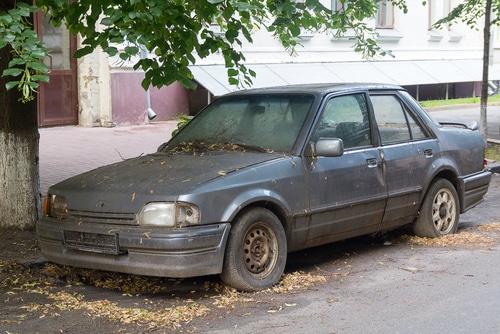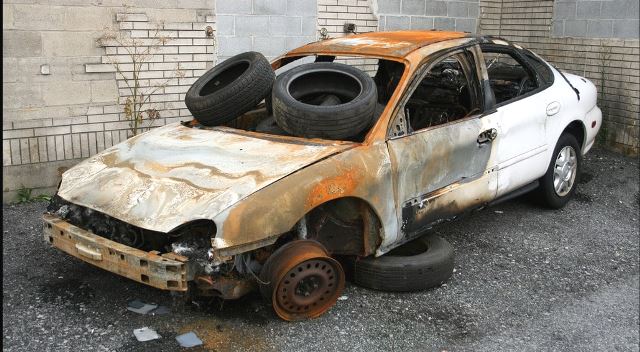Junk Car Buyers: Quick and Reliable Service for Your Old Vehicle
The Financial and Environmental Advantages of Recycling Junk Cars
Recycling scrap cars provides many financial and environmental benefits that prolong well past waste decrease. By reclaiming up to 90% of automobile components, this technique dramatically reduces land fill worry while preserving vital all-natural sources. It cuts down on power use and greenhouse gas exhausts connected to raw product removal and production. The process likewise produces work chances throughout different markets, from taking apart to logistics, and provides customers with cost-effective auto components. These benefits emphasize the complex value of recycling junk automobiles, yet there are even more elements to think about when assessing its complete influence.
Minimizing Land Fill Waste
Reducing land fill waste with the recycling of scrap automobiles plays a critical role in ecological conservation. When cars get to the end of their life cycle, efficient reusing procedures can significantly lower the volume of waste that winds up in landfills. Scrap cars, otherwise correctly reused, add to the growing issue of land fill overcapacity, worsening environmental destruction and possibly polluting dirt and groundwater with harmful compounds such as oil, gas, and hefty metals.

Additionally, the reusing procedure mitigates the unfavorable results of vehicle waste on biodiversity. Garbage dumps are notorious for disrupting neighborhood ecological communities, and reducing the influx of junk vehicles helps protect natural habitats. Ultimately, recycling scrap autos is a calculated strategy that cultivates sustainable waste monitoring, straightening with wider ecological goals.
Conserving Natural Resources
Along with mitigating landfill overcapacity, recycling scrap cars and trucks plays a considerable duty in preserving natural deposits. The auto market is heavily reliant on various steels, plastics, and various other products that need comprehensive mining and processing. By reusing scrap vehicles, we dramatically minimize the need for resources, thus curbing the ecological destruction associated with mining activities. Reusing steel from old cars lowers the necessity for iron ore removal, which in turn decreases power usage and greenhouse gas discharges.
Additionally, the process of recycling vehicle components such as copper, lead, and aluminum is far much less energy-intensive than generating these products from virgin sources. This power cost savings converts straight into minimized fossil gas intake and reduced carbon impacts (sell car to junkyard). In addition, by recovering and repurposing products, we extend the lifecycle of non-renewable sources, ensuring they stay available for future usage
In addition, reusing auto fluids like transmission, oil, and antifreeze liquid protects against harmful compounds from contaminating dirt and water resources. Through methodical recycling efforts, these fluids can be cleansed and recycled, advertising a circular economy and further decreasing the stress on natural resources. Hence, recycling scrap cars uses a complex strategy to preserving our earth's very useful natural possessions.
Developing Job Opportunities
The recycling of junk automobiles not only profits the Home Page atmosphere yet likewise stimulates financial development by producing job possibilities. This growing sector uses a wide variety of employment prospects, varying from the initial collection and transportation of old vehicles to the complex procedures of taking apart, arranging, and repurposing the different parts.

The expansion of reusing plants better intensifies the work market, demanding functions such as engineers, machine drivers, and quality assurance experts to handle the sophisticated equipment and make sure conformity with environmental guidelines. Even management placements, such as sales, marketing, and customer care, see a rise as the sector expands.
Reducing Manufacturing Expenses
By including recycled materials from junk automobiles, suppliers can significantly reduce manufacturing prices. The energy needed to refine recycled products is significantly less than that needed to create brand-new products from scrape.
Moreover, the recycling procedure helps improve the supply chain by supplying a constant increase of materials that are conveniently offered and frequently less expensive than recently extracted sources. These expense performances are specifically essential in a highly competitive industry like automobile manufacturing, where margins can be razor-thin. Furthermore, the recycling of junk automobiles assists reduce the unstable prices of raw materials, allowing producers to much better forecast and control their production budgets.
Providing Economical Auto Components
When scrap cars are recycled, the schedule of affordable vehicle components substantially boosts, benefiting both consumers and repair stores. Recycled vehicle components are typically cost a portion of the price of new parts, giving an affordable option for car owners and technicians. This cost can be essential for people that might not have the monetary means to acquire new components, allowing them to preserve their vehicles in secure and operational condition.
Repair stores likewise gain from this raised accessibility of economical components. By sourcing recycled elements, these businesses can lower their operational prices, which can be passed on to consumers through reduced service fee. This, subsequently, can cause greater client satisfaction and commitment, as customers appreciate the expense savings without jeopardizing on top quality.
Furthermore, the top quality of recycled parts has actually boosted substantially over the years, thanks to innovations in reusing procedures Source and quality assurance procedures. Many recycled parts undertake extensive screening to ensure they meet market criteria, offering dependability equivalent to brand-new parts - junkyard near me. By giving a economically practical and top notch option, the recycling of junk autos plays a pivotal role in supporting both the automobile repair service market and the more comprehensive customer market
Verdict
Reusing scrap autos presents substantial financial and ecological advantages by dramatically reducing landfill waste and preserving natural sources. This method decreases making expenses by recovering as much as 90% of automobile components, thus decreasing energy intake and greenhouse gas exhausts. In addition, it produces job opportunity across various fields and products cost effective automobile parts, reinforcing the automotive repair work industry. On the whole, the recycling of junk autos sustains both financial growth and sustainability objectives.
Reusing scrap cars presents many financial and ecological benefits that prolong well past waste reduction. Junk vehicles, if not correctly reused, add to the expanding issue of garbage dump overcapacity, worsening ecological deterioration and potentially polluting dirt and groundwater with harmful compounds such as oil, gas, and heavy metals.
By recycling scrap cars, we significantly reduce the need for raw products, therefore suppressing the environmental degradation associated with mining tasks.When scrap cars and trucks are recycled, the accessibility scrap cars for cash of cost effective automobile parts significantly increases, profiting both consumers and repair work stores.Reusing junk automobiles presents significant financial and environmental advantages by substantially decreasing landfill waste and preserving natural resources.